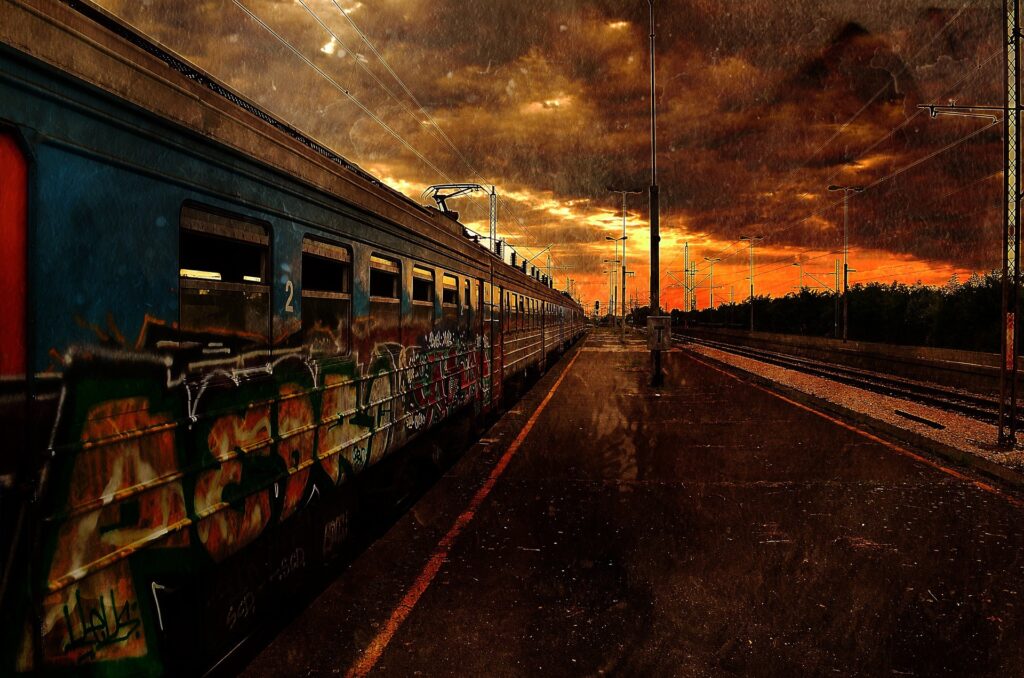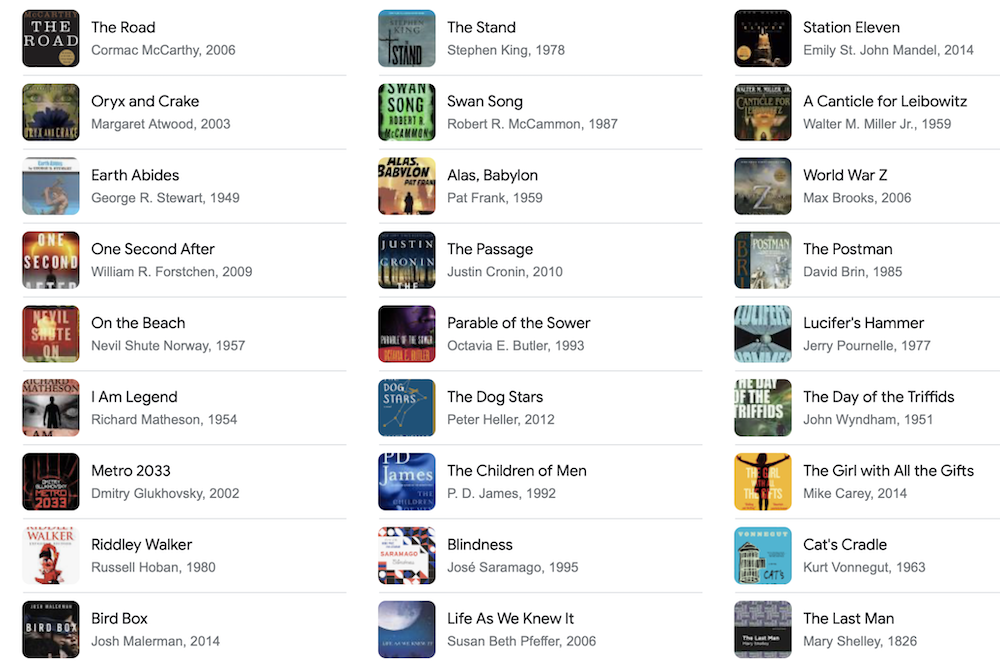What’s the difference between apocalyptic and post-apocalyptic fiction?
This is a question I’ve stumbled upon many times over the years, while participating in online discussion groups. As someone who writes in both genres, I’ve come to develop my own distinction for these terms.
The way I see it, “apocalyptic” fiction is a general label that can be used to describe any book dealing with the apocalypse — regardless of where the story starts relative to the catastrophe.
The post-apocalyptic fiction genre label is more specific. The inclusion of a “post” prefix tells you the main story events take place after some kind of of apocalypse.
That’s the short answer. Now let’s take a super-nerdy deep dive into the subject…
Apocalyptic vs. Post-Apocalyptic Fiction
These two terms are sometimes used interchangeably and generally refer to the same types of stories. Other times, they can mean two different things.

The “apocalyptic” label can be applied to any and all fiction that deals with some kind of doomsday event. The post-apocalyptic genre label, on the other hand, specifically refers to stories where that event has already happened.
The dictionary offers more clarification on the difference between apocalyptic versus post-apocalyptic fiction. For example, here’s how the Merriam-Webster Dictionary describes these two terms:
- apocalyptic — “of, relating to, or resembling an apocalypse”
- post-apocalyptic — “existing or occurring after a catastrophically destructive disaster or apocalypse”
As you can see, the first definition is somewhat general in nature. By that definition, “apocalyptic” fiction could include any story or novel that relates to the apocalypse in some way.
Maybe the story starts before the catastrophic event and progresses through it (common in fiction). Maybe it starts right in the middle of the event (far less common). Or maybe the story picks up weeks, months or years after the catastrophe (very common in fiction).
All of these scenarios could be labeled as “apocalyptic fiction,” because they relate to an apocalypse in some way. They just have different starting points.
But when it comes to post-apocalyptic fiction, the label is more specific — and more telling. When this genre label is applied, we know that the main story events will happen after the apocalyptic event (minus a flashback or two). That’s exactly what the “post” prefix means. It means after or later than.
Here’s another way to think of it:
- Apocalyptic fiction is a broad genre or category of fiction that includes stories taking place before, during, or after some kind of apocalypse.
- Post-apocalyptic fiction is a sub-genre of the above, in which the story’s main events take place after or later than the catastrophic event(s).
Examples: A Few Books You Might Enjoy
There’s no shortage of apocalyptic and post-apocalyptic fiction out there. These genres deliver a steady outpouring of new titles, year after year. It has become one of the most popular forms of speculative fiction, as shown by book sales and overall readership.
This genre appeals to readers and writers alike, and for many reasons. For one thing, these books can help us cope with real-life events (you know, like a global viral pandemic).

In fact, there are so many of these books available, it can be hard to decide where to start. Have no fear! In the image above, and in the list below, I’ve assembled some recommended reading for you. These books all fall under the apocalyptic “umbrella” genre, and they include some of my favorites.
- The Children of Men, by P.D. James
- The Girl With All the Gifts, by M.R. Carey
- Into the Forest, by Jean Hegland
- Parable of the Sower, by Octavia Butler
- The Passage, by Justin Cronin
- The Road, by Cormac McCarthy
- The Stand, by Stephen King
- Station Eleven, by Emily St. John Mandel
- Swan Song, by Robert McCammon
- World War Z, by Max Brooks
Do you have a favorite apocalyptic book that’s not shown above? Want to recommend it to others? I welcome your feedback. Feel free to drop a comment in the box below.
Resources for Fiction Writers
Ready to try your hand at writing apocalyptic or post-apocalyptic fiction? You’ve come to the right place. I’m in the process of creating a collection of articles for authors who want to tackle the “doomsday genre.”
Here are some articles you might like, for starters:
How to Write a Post-Apocalyptic Novel
This article offers seven tips and strategies for authors who want to write an apocalyptic style novel. If you want to write this kind of novel, but you’re not sure how to get started, this article is for you.
A List of Doomsday Scenarios
Apocalyptic stories and novels portray the end of civilization as we know it. And there are many ways to handle it, from a storytelling standpoint. This article examines some of the common (and uncommon) doomsday scenarios that fiction writers can employ. Alien invasions, killer comets, zombies, and more!
World Building in Apocalyptic Fiction
One of the great things about writing apocalyptic stories is that it gives you, the author, a chance to wipe the slate and start all over again. You can fundamentally alter, or even erase, the “old world” and create something new in its place — something from your imagination. This article provides tips for doing just that.
